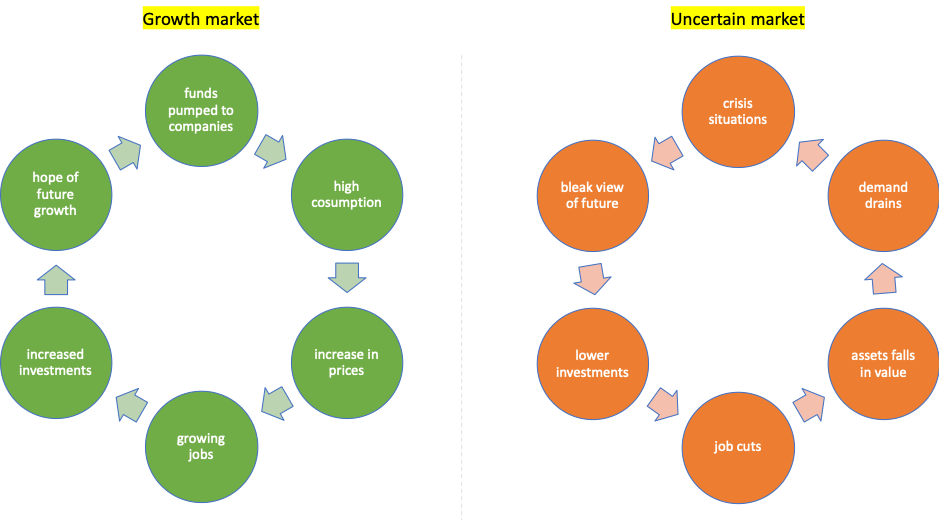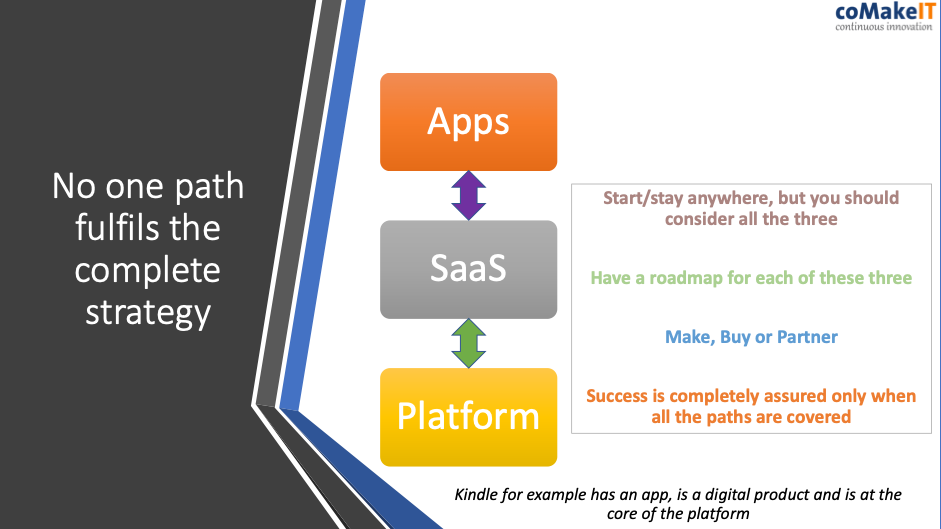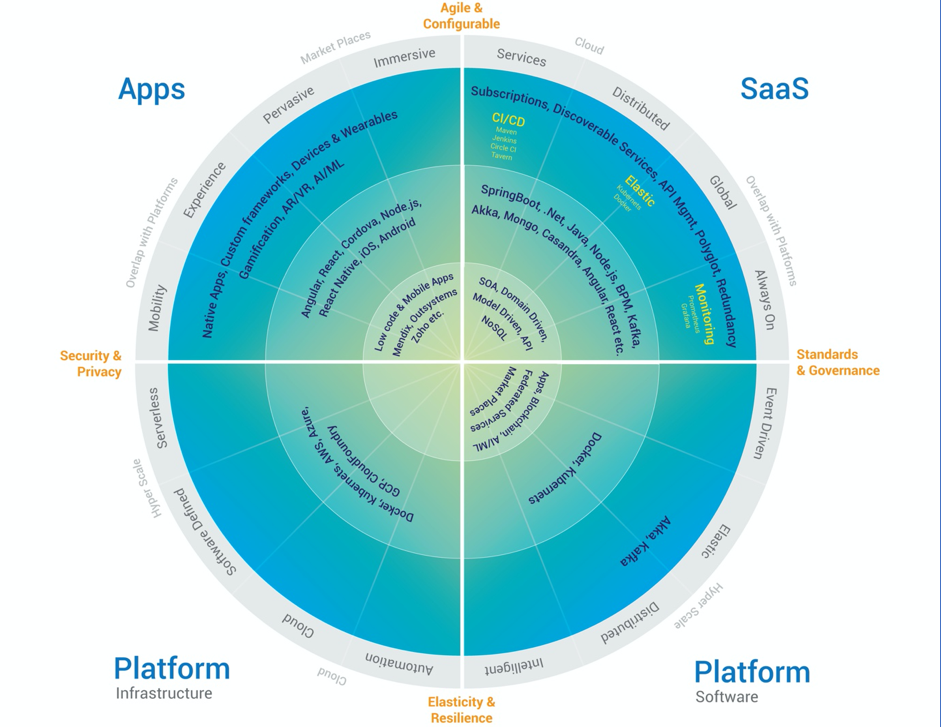It is not surprising to feel nervous at this time about what will be the fallout of this dramatic situation that the world has slid into. Supply chains are all choked, if not stalled. People movement is restricted. This means there is less and less trade and activity in the real world. The focus of governments and people all over the world is on overcoming the challenge and getting things back to normal as soon as possible.
I am not going to go into a lot about the situation. I think the below picture sums up well how the dynamics play out.

Dont fear the obvious! Turn the crisis into opportunity!!
The obvious is that our jobs will pose challenges as much/less as the economy does to our lives.
While there are many economists to deal with turning the tide back up, it is each of us that has to take care of sailing the tide safely. In times of crisis, it is practical to take it as an opportunity to do things you did not do before.
Let us look at how we can prepare.
Increase the value of our contributions. This could be in the form of contributions that are instrumental in increasing the value of product, processes or people.
The product value is all about functionality or technology, that is, the what or how.
More often than not, it is the how that differentiates your product from others.
Let us focus more on the technology (the how) aspect in this blog.
As coMakeIT, we have been advocating product organizations to think of products as a continuum of 3 aspects –
- engaging user experience
- technology that is resilient
- building and/or being part of ecosystems
And all this has to be simultaneously. Not one after the other as traditional thinking tells us.
We call it the A-S-P (Apps SaaS Platform) model. This, we think, is the best and holistic way to build a product. There is a playbook that we use to guide towards creating a roadmap to achieve this. (If you are interested, we can do a custom session for your organization). This way you build future ready products.

More about this for product thinking in a different context. For now, let us see how this relates to each individual.
In situations like we are in now, it is great to be generalists and those that can deliver more. This translates to what we call full stack. Full stack that means front-end and backend skills is gone. A-S-P is the new full stack! One should be able to design and build A-S-P products.
So how do we know what the skills are, for delivering A-S-P?
Our A-S-P model has a technology radar. It has the technologies that we see will help organizations to achieve their A-S-P product strategy. These will help you become the A-S-P ready A-S-P stack engineer. Let us take a look at it.

Paint a picture for yourself on where you are on the A-S-P Technology Radar and how much you can help your organization to deliver the A-S-P product strategy. The moment you are able to deliver across A-S-P, you know you are more valuable.
While the above is very comprehensive and a lot of technologies, there is a list that I think is very useful to make sure that you are able to focus on, for the short term. Based on what you already know or don’t know, make sure you have these skills:
- Angular, React, PWA (Certainly the way forward to provide mobility to your apps). AR is definitely something that you will see increasing with the amount of remote working that has come to use in the current context
- SpringBoot, Node.js, Kafka, NoSQL (MongoDB/Cassandra/relevant for your organization context). Make sure you are able to build using the Reactive manifesto (If you are from PHP background, certainly make sure you are on top with various frameworks. PHP continues to be a big choice for building applications. But you need to look at these other ones as well.).
- Add a functional programming language to your repertoire
- I am sure everyone is considering adding significant knowledge on Azure, AWS, GCP. If not, you should pick the one your organization is focused on. If there is none and you have to start, start with what you have access to. In the end, they will be the same. It is no longer sufficient if you know services from one of them. Every analyst in the world has already said in no uncertain terms that the world is moving towards a multi cloud model. BTW, it is not just multi-cloud. It is a world of hybrid cloud too. There are going to be increased private cloud adoptions too. Top of the stack there is the OpenStack. One should acquire skills there too
- Beyond the applications come the environment and intelligence aspects. Definitely being able to integrate devices into your skill base is essential. I think this will have huge impact in the post corona days
- Python, R will continue to be big on the data science front. Machine Learning with real use cases will continue to be on top of the minds of product leaders. Tensor Flow definitely is an important add
- Last but not the least. I think this will be a strategic thing to do. You should definitely add a low code platform skill. Mendix definitely stands out as a cool one
To conclude,
- You will be more valuable when you are able to deliver more.
- Full stack is now A-S-P stack.
- A lot depends on how you use the time now.
- Remember Stephen Covey’s sharpening the axe habit.
It doesn’t matter Whether it is worst or best time to be alive, Whether you’re in a good or bad job market, Or that the obstacle you are facing is intimidating or burdensome What matters right now, is RIGHT NOW
Look forward to hearing your take on this and your steps and recommendations.




